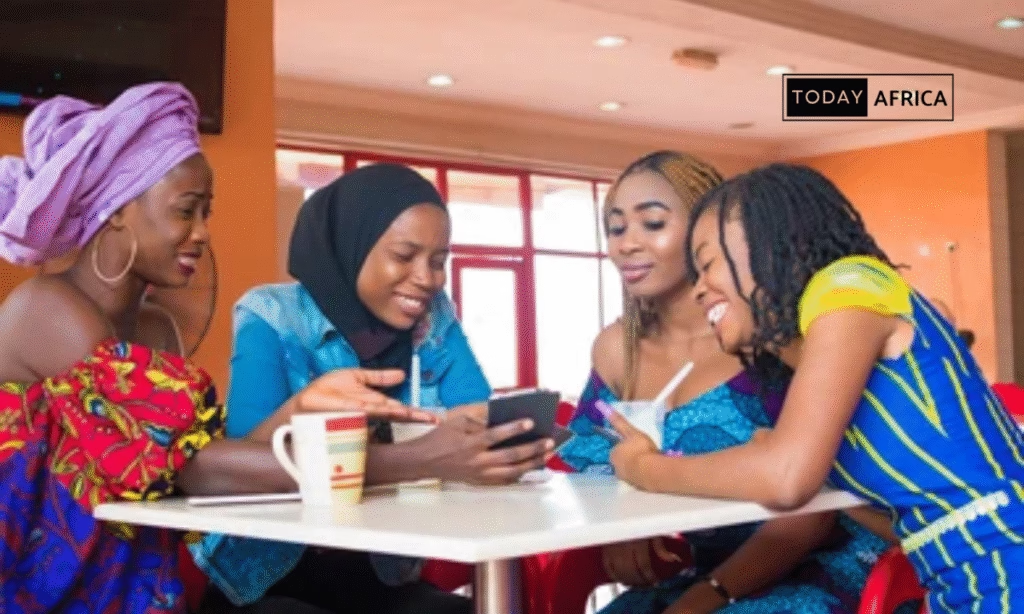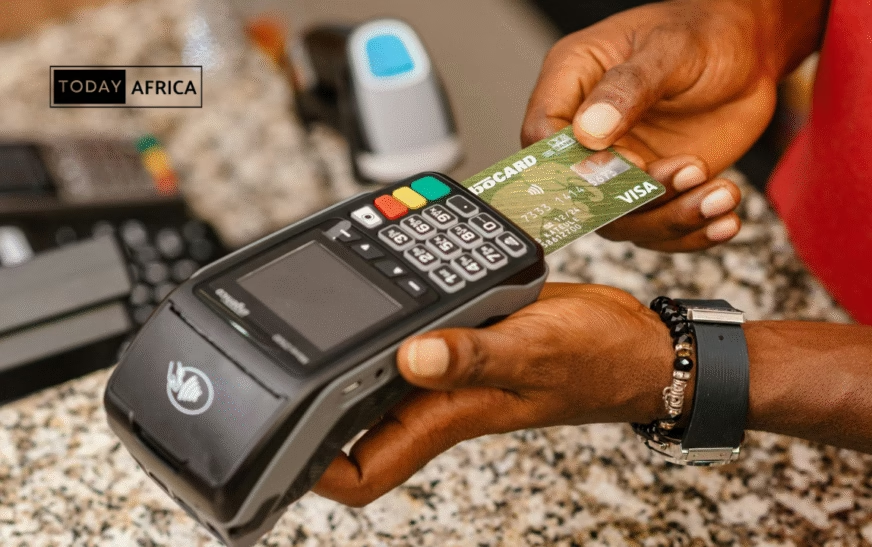Programs for African women in tech represent powerful initiatives designed to close the gender gap in technology.
These programs, including coding bootcamps, mentorship platforms, accelerator schemes, and advocacy campaigns, are catalyzing change, empowering women to thrive in STEM fields, spearhead tech startups, and reshape the continent’s digital future.
In this article, we’re exploring why these programs matter, the most impactful ones today, steps to get involved, and what the future holds.
Why Programs for African Women in Tech Matter
1. Gender imbalance
Despite making up nearly half the global workforce, women are still underrepresented in tech across Africa, often constituting only 20–30% in STEM roles. In Nigeria, for example, digital poverty disproportionately affects girls; poverty rose from 40% to 45% post‑COVID.
2. Root causes
Many girls are steered away from STEM due to stereotypes and a lack of role models. There is limited access to infrastructure, internet, and digital tools, which remain out of reach for many, especially outside cities. Even when they acquire skills, women often lack mentorship or community support to transition into tech careers.
3. Broader impact
Equity and empowerment enable women to access higher-paying tech roles will help lift households and communities. More innovation because more diverse teams will drive better problem-solving, a crucial need in Africa’s unique challenges. With its young and growing workforce, Africa stands to gain massively from equal participation in digital transformation.
Read Also: 44 African Women in Tech Empowering the Next Generation of Innovators
Key Categories of Programs for African Women in Tech
Coding bootcamps & skill-building academies
1. She Code Africa
- Founded in 2016 by Ada Nduka Oyom, this Lagos-based nonprofit has empowered over 62,000 women and girls across 15+ countries.
- SCA Academy is a flagship 12-week intensive covering frontend/backend dev, product design, and product management. Its inaugural cohort began April 2024, with 100 women selected from over 1,700 applicants.
- Funded by FedEx, they aim to train 100,000 women by 2030.
- Training includes technical modules, mentorship, career coaching, and capstone projects.
2. Women Techsters (Tech4Dev)
- Ambitiously set to empower 5 million women by 2030.
- Offers multi-track education—software dev, mobile, product design, cybersecurity, and product management.
- Three key programs: Bootcamps: 3-week monthly modules for intermediate learners. Fellowship: Year-long with 6 months of training + 6 months internship and mentorship. Masterclasses: 1–2 day deep dives with industry experts.
3. Soronko Academy (Ghana)
- Founded by Regina Honu; launched in 2017.
- To date, trained 20,000+ women and girls in coding and human-centered design.
- Focuses on design thinking, coding, and critical soft-skills, with strong community and social engagement.
4. SheTech Boot Camp (Revamp Africa, Nigeria)
- Targets girls and young women with free digital and life-skills over 3 months.
- Teach web design, graphics, social media management, followed by mentorship, internships, and entrepreneurial support.
Mentorship & Community Networks
1. Women in Tech Africa (WiTA)
- Created by Ethel D. Cofie, this Pan‑African network has chapters in 30+ countries.
- Hosts flagship events: Women in Tech Week: global conferences, training, peer learning. MTN GirlCode: app development workshops for Ghanaian girls. HerFuture Africa, CTA-Agritech hackathons, and many more.
2. W.TEC (Nigeria)
- Launched in 2008 by Oreoluwa Lesi; has reached 26,000+ girls through camps and after-school clubs.
- Offers digital circuit education, coding, media production, online safety, and more.
- Hosted “She Creates” camps for girls aged 13–17 with a strong volunteer base.
3. Tech Herfrica
- Created in 2023 by Imade Bibowei‑Osuobeni to promote digital & financial inclusion among rural women.
- Serving Nigeria, Ghana, Kenya, Uganda, Rwanda, Tanzania.
- Focuses on bridging gaps in agriculture-based communities through digital tools.
4. AkiraChix & KamiLimu (Kenya)
- Focus coding and personal development to raise women’s tech participation.
- AkiraChix trains ~70 women/year in software dev; founder Linda Kamau states women “only needed someone to show them a path, then they took it and ran with it”.
- KamiLimu mentorship blends public speaking and product management into computer science education with strong placement results.
Read Also: How Ankole Luxury Founder is Changing the Lives of Kenya’s Artisans
Accelerators, Fellowships, and Funding
1. Glovo WIT Bootcamp (Nigeria)
- 12-week intensive launched April 2025 in collaboration with She Code Africa and Lagos State Government.
- Covers frontend, backend, mobile programming (React, Node.js, Flutter).
- Includes career coaching, soft skills, and real-world capstone projects like food-waste apps.
- Over 100 women graduated; alumni receive ongoing networking and hiring support.
2. Other Female-Led Accelerators
- GreenHouse Lab (Nigeria): 3-month accelerator + mentorship + seed funding (~$100k).
- ShEquity Business Accelerator (SHEBA): €50k – 250k support for agritech/cleantech.
- I’M IN Accelerator (South Africa): 10-month program for Black tech founders (includes women).
- Grindstone X (SA): supports scaling of 30 women-led startups.
- WE4A (EU/GIZ): offers grants up to $50k .
Competitions, Events, and Advocacy
1. Miss Geek Africa
- Annual app-build competition for ages 13–25 across 22 countries.
- Prizes include cash awards, business training, and sometimes investment support.
2. MTN GirlCode & #HerFuture Africa
- Tech bootcamps in Ghana with WiTA and ATBN/Comic Relief, supporting coding, IoT, ideation.
- CTA-Agritech hackathons encourage agri-solution innovation led by women.
3. Women in Tech Week
- Offers workshops, panels, mentoring, and peer networking – endorsed by Graca Machel Trust.

4. Corporate-led events: Vodafone, Mastercard
- Vodacom Women Farmers Programme and Mastercard Girls4Tech drive digital inclusion and STEM learning for girls.
Read Also: How Omina Otsieno’s Founder is Changing the Lives of Rural Women in Kenya
How to Get Involved
Women & girls
- Join a program: Start with She Code Africa, Women Techsters, W.TEC, Soronko, or local AkiraChix chapters.
- Entry points: Many offer low-barrier Bootcamps (3–12 weeks), virtual Open Days, and part-time Masterclasses.
- Preferences matter: Digital design, cybersecurity, mobile dev—they’re preparing women for evolving tech roles.
Employers & investors
- Partner strategically: Recruit from Bootcamps or support fellowships and accelerator cohorts.
- Sponsor cohorts: Fund scholarships, projects, capstone initiatives.
- Diverse hiring: Build technical track-ins for Bootcamp grads.
- Mentorship: Sponsor career or program mentors; host capstone partnerships.
Governments & donors
- Policy support: Finance digital education in rural areas and enforce gender-smart programs.
- Infrastructure: Expand internet and devices to underserved communities.
- Mandated training: Set gender equity goals in public tech recruitment.
Best Practices for Program Success
- Hybrid & modular curriculum: Balanced tech + soft-skill training increases real-world usability.
- Strong mentorship: Pair participants with seasoned professionals for ongoing support.
- Pipeline & placement: Internships, capstone linkages, and direct hiring lead to sustained employment.
- Sustainable support: Funding, fundraising, and stipend structure matter—e.g., Glovo’s career & alumni support.
- Impact tracking: Measure KPIs—graduation, job placement, income growth, community outcomes.
What next?
- Rural & rural‑urban outreach: Programs like Tech Herfrica highlight the need for broader access.
- Deep‑tech focus areas: AI, agri‑tech, fintech, cybersecurity—these are becoming core.
- Pan-African integration: Networks like WiTA, W.TEC, Tech4Dev link across countries for broader scalability.
- Corporate scaling: With more companies sponsoring cohorts (e.g., Glovo, FedEx), quality and outreach increase.
Read Also: Ifeoma Uddoh, a Social Entrepreneur Creating Economic Prosperity for Women
Conclusion
Programs for African women in tech are far more than training; they are ecosystems that drive transformation. There are opportunities to access skills, build networks, launch businesses, and influence global innovation.
Every stakeholder – aspirants, employers, donors, governments has a crucial role. By contributing time, resources, and support, we can empower the next generation of African women technologists.
Share this post, follow these women and their organizations, and be part of the change you want to see.
- Facebook: Today Africa
- Instagram: Today Africa
- Twitter: Today Africa
- LinkedIn: Today Africa
- YouTube: Today Africa Studio
















